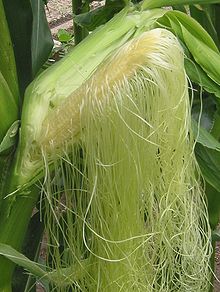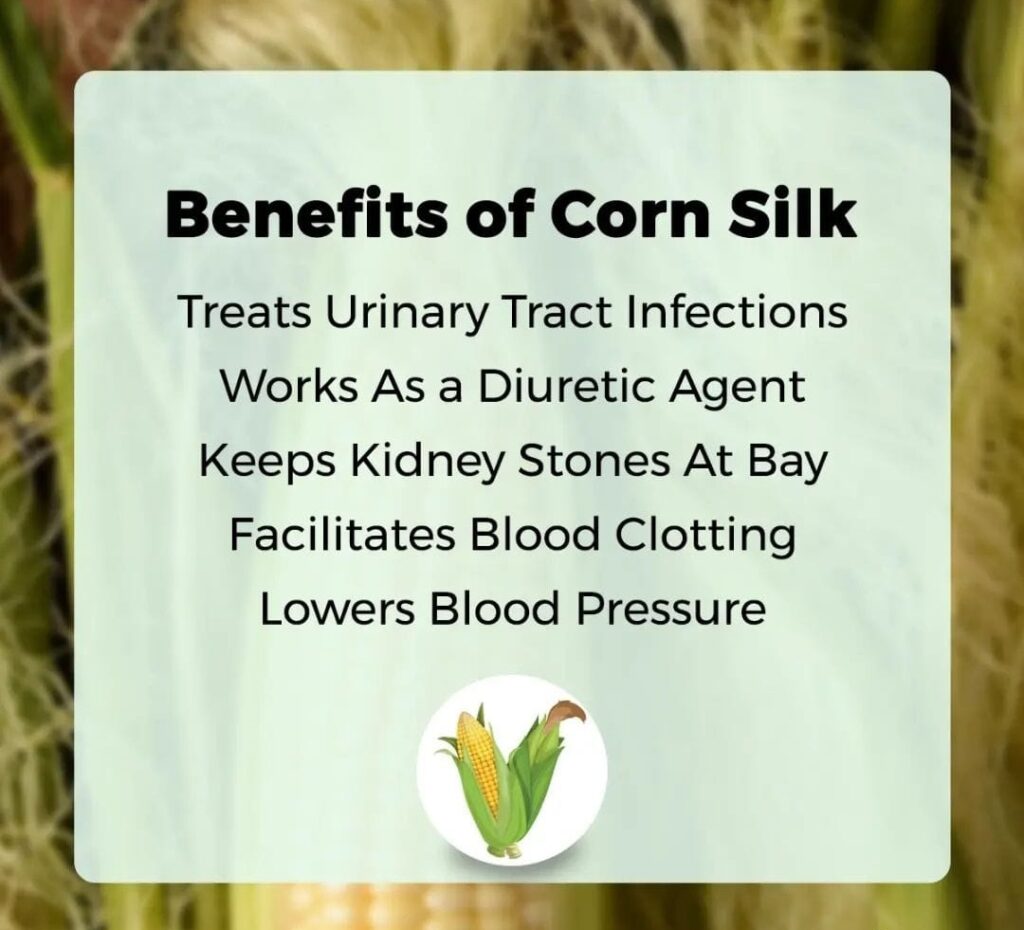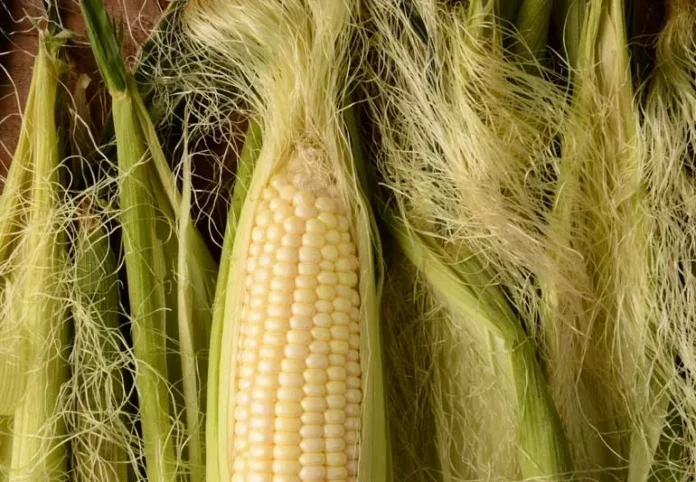
What is Corn Silk?
Corn silk (Stigma maydis) is the layer of glossy, thread-like strands found between the corn husk and ear. An ear of corn may have 300 to 600 corn silks. They’re a key part of the vegetable’s reproductive system and essential to crop pollination. The fibers trap the pollen that fertilizes the cob and helps kernels grow. Along with the husk, corn silk also protects kernels, helping the ear of corn retain its moisture and sweetness.
What nutrients are in Corn Silk?
Studies show that corn silk contains:
- Carbohydrates.
- Fiber.
- Minerals like calcium, iron, sodium, potassium, zinc and chloride.
- Protein.
Uses
Corn silk is used for various medicinal purposes because of its natural benefits. It acts as a diuretic, helping the body produce urine, which can reduce water retention and lower blood pressure. It supports kidney health by preventing stones and flushing out toxins. Corn silk can also help treat urinary tract infections (UTIs) and reduce inflammation, making it useful for conditions like arthritis. Additionally, it may help control blood sugar levels and improve digestion. When applied to the skin, corn silk can soothe irritations and burns. It is usually consumed as tea or in tincture form, but it’s best to consult a doctor before using it, especially if you have health issues or take medications.
Health Benefits
Corn silk (Zea mays) has several health benefits, primarily due to its rich nutrient profile. Here are some of the notable health benefits:
Keeps your Urinary System Healthy
Corn silk extract can act as a powerful diuretic, making you pee more. “Increased urine flow can prevent the buildup of bacteria that leads to urinary tract infections (UTIs) and bladder infections,” says Campbell. And if you do get a UTI or bladder infection, corn silk extract soothes inflammation to ease pain.
Fights Inflammation

The plant pigment or flavonoid that gives corn silks their light green, yellow, brown or red colors is also an antioxidant. In fact, corn silk has as much antioxidant value as vitamin C. “Antioxidants protect against inflammation and the effects of aging, as well as diseases like cancer and diabetes,” notes Campbell.
Improves Cholesterol Levels
The flavonoids in corn silk may improve your cholesterol numbers by lowering triglycerides and low-density lipoproteins (LDL). “These unhealthy forms of cholesterol cause plaque deposits to form inside your arteries, increasing your risk of heart attacks and strokes,” Campbell explains.
Diuretic Properties
Corn silk is known for its natural diuretic effects, meaning it helps increase urine production. This can assist in reducing water retention, promoting detoxification, and lowering blood pressure by flushing excess sodium from the body.
Skin Soothing Properties
Corn silk can be applied topically to the skin to soothe irritations, burns, and insect bites. Its anti-inflammatory properties help calm the skin and reduce redness and swelling.
Respiratory Health
Corn silk is sometimes used in herbal remedies to support respiratory health. Its soothing properties may help relieve coughs and respiratory discomfort.
Blood Sugar Regulation
Some studies suggest that corn silk may help lower blood sugar levels, making it potentially beneficial for people with diabetes. It may improve insulin sensitivity and assist in managing blood sugar levels.
Kidney Support
Corn silk is traditionally used to support kidney health. Its diuretic properties can help prevent kidney stones by promoting urination and preventing the buildup of minerals that can form stones. It may also help to flush out toxins and reduce the risk of urinary tract infections.
Side Effects
Corn silk is generally safe for most people when consumed in moderate amounts, but it can cause some side effects, especially when taken in excess or by those with specific health conditions. Here are the potential side effects:

- Allergic reactions
- Low blood pressure
- Gastrointestinal issues
- Drowsiness
- Hormonal effects
- Pregnancy and breastfeeding concerns
- Drug interactions




